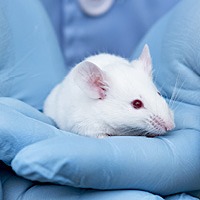susan_smith@unc.edu
704-250-5065
Susan Smith, PhD
Professor of Nutrition
Dr. Smith’s laboratory studies the molecular mechanisms by which dietary components affect prenatal development. Current work largely focuses upon alcohol and how it causes Fetal Alcohol Spectrum Disorders (FASD). We are interested in how alcohol damages the embryo and fetus, and in the environmental and genetic factors that attenuate or heighten alcohol’s toxicity.
First described in 1968, FASD remains a leading known cause of neurodevelopmental impairment in the U.S. Our work examines the molecular mechanism by which alcohol causes the specific neurobehavioral and craniofacial dysmorphologies that typify FASD. Our research has identified much of the intracellular signaling pathway initiated by alcohol to trigger the apoptotic elimination of craniofacial precursors, a population known as the neural crest. This work currently focuses on alcohol’s ability to cause nucleolar stress, a sensor of cellular energy status and an activator of p53/MDM2-mediated cell cycle arrest and cell death.
More recently, our work has expanded to interrogate how alcohol disrupts nutrient metabolism and requirements of the maternal-fetal dyad. Using bioinformatic approaches, we performed simultaneous whole transcriptome analysis and untargeted metabolomics on the alcohol-exposed mouse mother and her fetuses. This has revealed that alcohol causes a microbial metabolite biosignature in mom and fetus that may have both neuroprotective and neuroinflammatory effects. It has also revealed how alcohol changes maternal metabolism and impairs her ability to supply essential nutrients that support her growing fetus. We are further characterizing the maternal microbiome under alcohol and how this may further affect maternal-fetal metabolism. We have also studied the long-term health impact of FASD and find that alcohol causes metabolic syndrome in the aged offspring; moreover, this glucose intolerance and obesity both correlate with worsened cognitive function as it ages.
Finally, we use precision nutrition approaches to identify nutrient-related gene polymorphisms that affect cognitive performance in those who are diagnosed with FASD. This work has uncovered a critical influence of the essential nutrient choline and its transporter SLC44A1 and highlights a mechanism by which supplemental choline may improve outcomes in alcohol-exposed pregnancies. This work is expanding to identify additional nutrient-related effect alleles using a GWAS approach. Finally, in work now concluded, we showed that alcohol creates a functional iron deficiency in both mother and fetus, and this causes both fetal anemia and brain iron deficiency; dietary iron intervention reverses these deficits and improves cerebellum-dependent learning.
Dr. Smith’s laboratory studies the molecular mechanisms by which dietary components affect prenatal development. Current work largely focuses upon alcohol and how it causes Fetal Alcohol Spectrum Disorders (FASD). We are interested in how alcohol damages the embryo and fetus, and in the environmental and genetic factors that attenuate or heighten alcohol’s toxicity.
Show MoreSmith’s Team
In the News
Dr. Susan M. Smith Named Inaugural Dickson Foundation – Harris Teeter Distinguished Professor in Nutrition
Susan M. Smith, PhD, has been named the inaugural holder of The Dickson Foundation – Harris Teeter Distinguished Professorship in Nutrition. Smith, who joined the UNC-Chapel Hill faculty in 2016, is a professor of Nutrition at the Gillings School of Global Public...
Incorporating genetic diversity into animal model studies of precision nutrition
One of the barriers to translating research results from pre-clinical to clinical is when positive results seen in animal models fail to be apparent in humans. Many early-stage studies use a single mouse strain. These mice are genetically homogeneous, and while this...
Myth or Fact? When You Eat Is as Important as What You Eat
By Cecilia Kwan, PhD, RD Postdoctoral Research Associate, Smith Lab, UNC NRI Many people are concerned with maintaining a healthy weight and look for special food rules to help guide them. But sometimes these rules turn out to be more myth than fact. When to eat is...
Milk. Is It Good for You?
The news about drinking milk to stay healthy and live longer is sometimes contradictory and often confusing. Some people believe that they should drink three glasses of milk a day, while others think that they should not eat any dairy or drink any milk at all. What...









